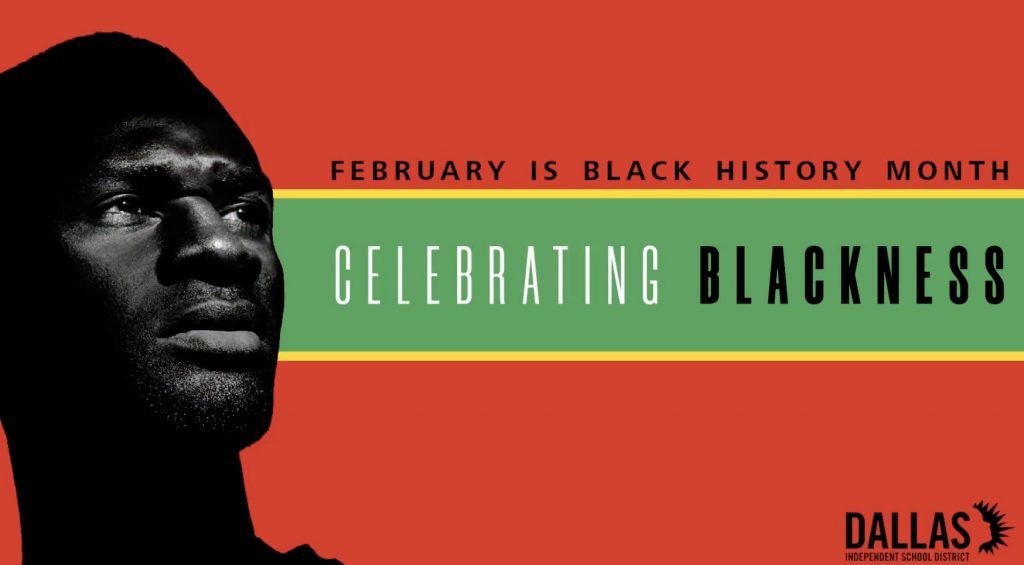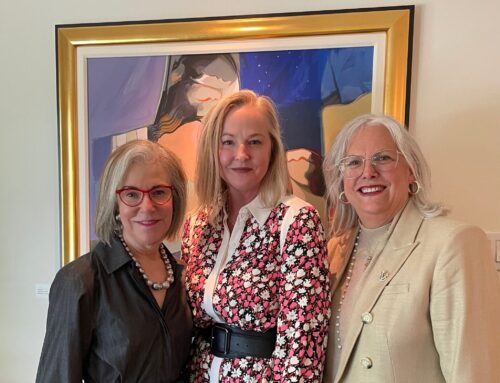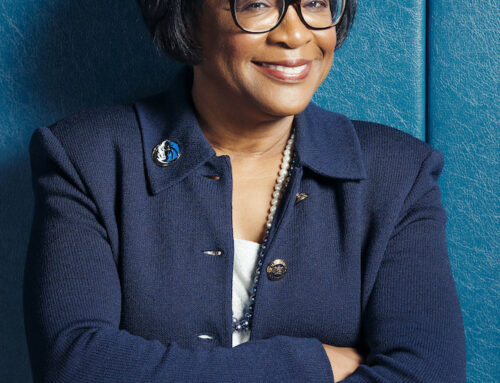
Dallas ISD’s theme for Black History Month this year is “Celebrating Blackness.” Photo courtesy of Dallas ISD.
February is Black History Month, but some Dallas ISD students are learning about African-American history throughout the school year.
Since 2019, DISD has offered an African-American studies course to its high-school students, with 34 schools now teaching the class.
Hillcrest High School is one of those schools.
Ninth-grade student Tyler Robinson, who is enrolled in the course this year at Hillcrest, says he decided to take it because he wanted to dig deeper into African-American history.
“I don’t really know everything about African-American history, and since I am an African American, I just feel like I should know at least, not only the highlights, but the stuff not everyone talks about,” Robinson says.
The project-based class allows students to shape the curriculum, says Robinson’s teacher, Anais Childress. Students learn about themes important to the instructor and interesting to themselves.
Shalon Bond, the district’s director of the social studies department, says DISD is a 3×3 district, which means students take three social studies courses — world geography, world history, and U.S. history and economics. During their fourth year, students can take an elective course, such as African-American studies, though many graduation paths require students to take a fourth history class.
In the course, students learn about everything from the Harlem Renaissance to the civil rights movement to the continent of Africa itself. Childress says her students, who come from each grade level at Hillcrest, indicated a desire to learn more about the leaders of the civil rights movements, and not just the most famous of them, such as Martin Luther King, Jr. and Malcolm X.
They also wanted to discuss how today’s culture has developed, including through more recent movements like Black Lives Matter.
“That mix of the arts with culture and history all together come to life in my classroom, which I love,” Childress says.
Childress, now in her second year teaching African-American studies at Hillcrest, gained the knowledge and experience needed to teach the course as an undergraduate student at North Park University in Chicago, where her study of history focused on the civil rights movement and how minority groups have been excluded from the historical narrative in the U.S.
Though Childress is knowledgeable on the topic, teaching the class has not come without its difficulties. For example, she’s noticed a dearth of quality resources available to help with course instruction. She was also surprised by how much students didn’t know about the topic.
“I think that the gaps in learning speak to the current context that we have in the American public education system, and trying to figure out how to fill those gaps in a year is something that’s quite challenging, but I didn’t expect to see it in the way that I have seen it over the past year,” she says.
Childress isn’t deterred by those obstacles, and she guides her students through an empowering and rigorous curriculum, which she says helps prepare them for college history courses. She knows history can be traumatic, so she’s intentional with the videos and images she shows.
“I always want students to feel empowered, students to feel heard and understood,” says Childress.
Robinson says this class has encouraged him to think about Black History Month differently.
“I feel like now knowing the history and the past African-American struggles, I understand why we have Black History Month,” he says.






